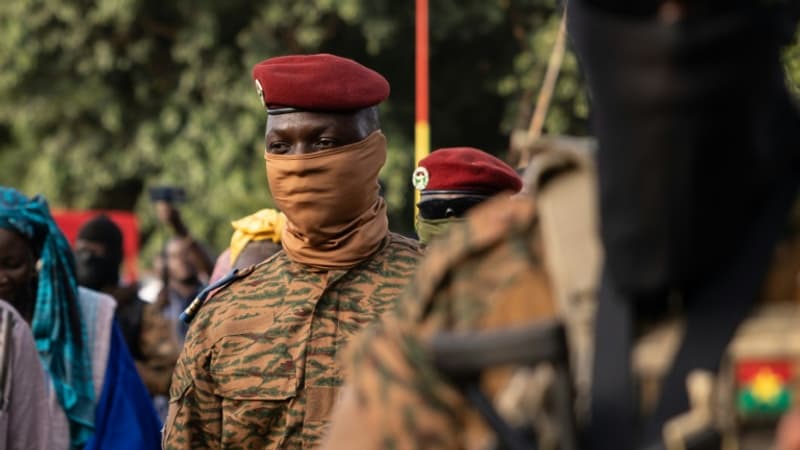Russia will build a nuclear power plant in Burkina Faso
At the end of 2020, only 22.5% of Burkinabes (67.4% in urban areas, 5.3% in rural areas) had access to electricity, according to figures from the African Development Bank.Burkina Faso and Russia continue to strengthen their ties: an agreement was signed on Friday for the construction by Moscow of a… An agreement was signed on Friday for the construction of a nuclear power plant in Burkina Faso, where only 22.5% of Burkinabes (67.4% in urban areas, 5.3% in rural areas) had access to electricity. The agreement was made on the occasion of the Russian Energy Week held in Moscow, and was signed by the Russian side. Burkine Faso is seeking to diversify its partners and has become notably closer to Russia. South Africa is home to the continent’s only nuclear plant, Koeberg, in South Africa, near Cape Town. Burkina has an alliance with Mali and Niger, and a defense cooperation with France.

Published : 2 years ago by Willa Leal in Finance
At the end of 2020, only 22.5% of Burkinabes (67.4% in urban areas, 5.3% in rural areas) had access to electricity, according to figures from the African Development Bank.
Burkina Faso and Russia continue to strengthen their ties: an agreement was signed on Friday for the construction by Moscow of a nuclear power plant in this Sahel country, where less than a quarter of the population has access to electricity. Burkina Faso, governed by a military regime since last year, is seeking to diversify its partners and has become notably closer to Russia. “The Government of Burkina Faso has signed a memorandum of understanding for the construction of a nuclear power plant,” he said in a press release. “The construction of this nuclear power plant aims to cover the energy needs of the populations,” the text continues.
The signing of this agreement took place on the occasion of the Russian Energy Week held in Moscow, in which the Minister of Energy of Burkina Faso, Simon-Pierre Boussim, participated. On the Russian side, the document was signed by Nikolay Spassky, deputy director general of the Rosatom nuclear agency. “The memorandum constitutes the first document in the field of peaceful use of atomic energy between Russia and Burkina Faso,” Rosatom said in a press release. The document “comes to materialize the wish of the president of Faso, Captain Ibrahim Traoré, expressed last July during the Russia-Africa summit during an interview with his Russian counterpart Vladimir Putin,” details the Burkinabe Government.
South Africa is home to the continent’s only nuclear power plant
At the end of 2020, only 22.5% of Burkinabes (67.4% in urban areas, 5.3% in rural areas) had access to electricity, according to figures from the African Development Bank. “We plan, if we can, to build nuclear power plants by 2030, to solve the problem of the energy deficit,” Minister Boussim declared on Thursday, quoted by the Russian news agency TASS.
Burkina Faso imports much of its electricity from neighboring Ivory Coast and Ghana and produces some locally, mainly through hydroelectric or solar power. Currently, the African continent only has one nuclear power plant: Koeberg, in South Africa, near Cape Town.
According to the South African researcher specialized in nuclear structures, Iyabo Usman, Burkina Faso “does not have enough qualified personnel to operate this nuclear power plant” and will have to resort to foreign personnel. The country “could benefit from the support of the IAEA (International Atomic Energy Agency),” particularly financial, because it is one of the member states of the organization, adds the associate professor at the University of the Witwatersrand, located in Johannesburg. He also mentions “a competition between China and Russia on the continent” in terms of investment in nuclear power plants.
Burkina Faso is governed by Captain Ibrahim Traoré, who came to power through a coup in September 2022, his second in eight months. Since he came to power, Burkina has distanced itself from France, a historical partner and former colonial power, notably by securing the departure of French soldiers from its soil in February.
In its search for new allies, Ouagadougou has become noticeably closer to Moscow. Vladimir Putin announced during the St. Petersburg summit in July that Moscow would provide free grain to six African countries, including Burkina Faso, in the coming months. In early September, a Russian delegation led by Deputy Defense Minister Yunus-Bek Yevkurov traveled to Ouagadougou to discuss issues of development and military cooperation with Ibrahim Traoré. On September 30, in an interview on national television, Captain Traoré stated that most of the Burkinabe army’s equipment was Russian.
Burkina Faso has been facing deadly and recurring jihadist violence for several years in much of its territory, which has left more than 17,000 dead and more than two million internally displaced. Burkina has formed an alliance with Mali and Niger, two countries led by military regimes that also maintain good relations with Moscow, within the framework of the Alliance of Sahel States (AES), a defense cooperation.
Topics: Russia, Economy, Russia-Ukraine War, ESG
